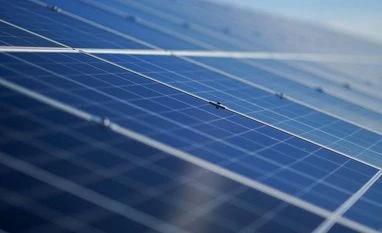Sri Lanka to implement renewable energy generation plan from June 1
Preparations are being made to search for roof spaces in order to install solar panels on industrial, government, hospital, and hotel roofs
)
Representative image
Facing a power crisis, Sri Lankan Minister of Power and Energy, Kanchana Wijesekera on Sunday said that an accelerated renewable energy generation plan is likely to be implemented from June 1.
The decision to implement the plan by taking immediate action was taken during a discussion held at the Ministry of Power and Energy after the fuel bill for power generation exceeded USD 100 million per month, reported Colombo Page.
Under the Renewable Energy Generation Plan, so far, two measures have been taken to implement the solutions. Preparations are being made to search for roof spaces in order to install solar panels on industrial, government, hospital, and hotel roofs.
Further, the Ceylon Electricity (CEB) would manage the thermal and hydropower plants to help in the reduction of generation costs at night and also save money during the day, reported Colombo Page.
As far as the second measure is concerned, provisional approval will be given for proposed projects alongside a reasonable fee revision.
Also Read
The project is expected to work in collaboration with the Ceylon Electricity Board, the Sustainable Energy Authority, and the investor after the purchase agreement is issued. It will enhance the line of transmission alongside the capacity of the national grid with the required investment from the investor, reported Colombo Page.
In addition, post the financial and technical evaluation, large-scale investments for selected renewable projects will be accommodated as well.
Meanwhile, Sri Lanka is facing its worst economic crisis since independence with food and fuel shortages, soaring prices, and power cuts affecting a large number of the citizens, resulting in massive protests leading to the resignation of former Prime Minister Mahinda Rajapaksa and the appointment of Ranil Wickremesinghe as the new Prime Minister.
(Only the headline and picture of this report may have been reworked by the Business Standard staff; the rest of the content is auto-generated from a syndicated feed.)
More From This Section
Don't miss the most important news and views of the day. Get them on our Telegram channel
First Published: May 29 2022 | 12:32 PM IST


